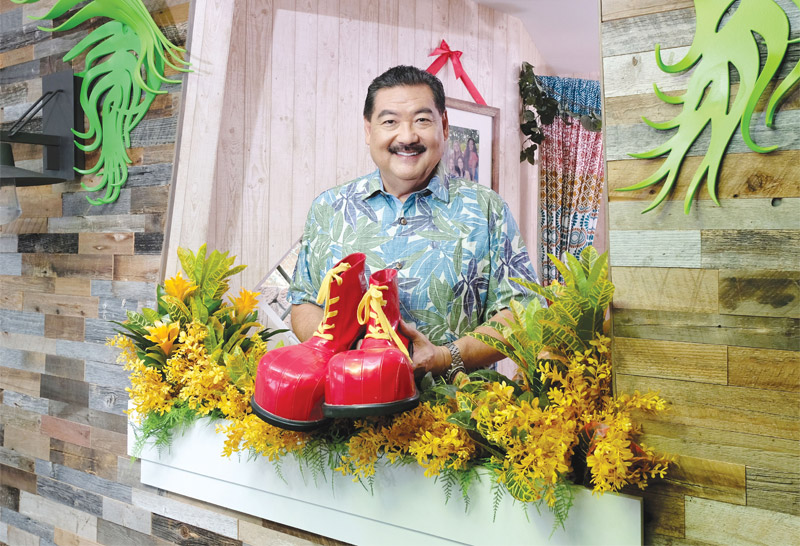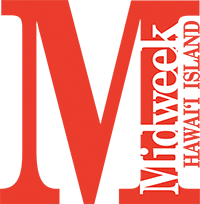Home Away From Home

Photo by Lawrence Tabudlo
As president of Ronald McDonald House Charities Hawai‘i, Ed Nishioka helps families facing serious health challenges.
A week after Grammy Award-winning musician John Legend arrived at Ronald McDonald House Charities Hawai‘i on Oct. 8, Ed Nishioka could finally breathe a sigh of relief.
The new president of the nonprofit, which provides a home away from home for families undergoing serious medical treatments, had known about the visit for months. But his higher-ups had sworn him to secrecy.
“That was the hardest thing,” he recalls. “I had to tell my staff we’re doing something big with someone big so let’s prepare, but I couldn’t tell them who because at the time (the RMHC global team) was still dotting the i’s and crossing the t’s.”
The surprise celebrity appearance, which was under a media embargo until Oct. 15, coincided with the 50th anniversary of the opening of the first RMHC house in Philadelphia. (Hawai‘i opened its first RMHC house, located on Judd Hillside Road in Mānoa, in 1982. A second, on O‘ahu Avenue, followed in 2006.)
When Legend got to the Judd Hillside house, about 50 families who had stayed with RMHC Hawai‘i over the years were there. The All of Me balladeer mingled with all of them. They strung lei, danced hula, painted T-shirts, made musubi and posed for photos.
A few hours later, Legend was at Neal S. Blaisdell Center for his concert.
“A lot of the time, performers like to rest on the day of their concert, not be actively running around taking pictures,” Nishioka notes. “But he did whatever he was asked to do and did it with a smile.
“He talked about his family and about having a child who went through some issues and how that’s why our charity is so important to him.”
(Legend’s 6-year-old son, Miles, has type 1 diabetes and the star told People magazine that knowing how crucial it is for families to have others to lean on while navigating health challenges is what drew him to RMHC.)
While Nishioka and his team were thrilled to witness the joy Legend’s visit brought, they’re also hoping the publicity will translate to action and donations.
“One of the things that is a challenge is Hawai‘i is a small community,” Nishioka says. “Yet there are a ton of great nonprofits so it’s very competitive out there.”
Nishioka should know. He sits on the board of six local nonprofits, was previously director of development for Boy Scouts of America, Aloha Council and had managed Marcus Mariota’s Motiv8 Foundation.
He wants folks to know how their donations support RMHC Hawai‘i’s mission: Not just by keeping the two houses open and available, but by keeping refrigerators and pantries at both houses stocked so families don’t have to worry about buying groceries, and by keeping vehicles running so RMHC staff can drive families to and from medical appointments.
“Because if you know you have somewhere to stay and you know you can get to the hospital and you know you have something to eat, you’re a mile ahead of any of your other problems,” Nishioka says.
Donations also helped pay for hospitality carts at Kaiser Permanente Moanalua Medical Center and Kapi‘olani Medical Center for Women & Children. The brightly colored carts are stocked with free snacks, beverages and activities for families at neonatal intensive care units.
And donations and corporate partnerships ensure RMHC Hawai‘i can treat families to free movie nights and complimentary restaurant outings.
“Anything we can do to create normalcy for the families and make them not have to think about the terrible things that their child is going through during the day,” Nishioka says.
The RMHC Hawai‘i team forms strong bonds with the families they support. Their offices are located inside the Judd Hillside house, so it’s not uncommon for them to chat with parents in the kitchen or watch keiki play in the recreation area.
Between the Judd Hillside property and the O‘ahu Avenue property, RMHC Hawai‘i has 17 bedrooms available. Most of its families are referred by social service organizations on the neighbor islands, Guam or American Samoa.
Nishioka points out that RMHC accepts all who meet its criteria, regardless of income level. He says when folks face serious, life-threatening illnesses, the financial toll can be devastating for any family.
“We calculated that a family staying with us for six months, if they had to stay in a cheap hotel room in Waikīkī, pay for transportation, pay for food, they would have to pay out over $100,000,” he says. “Plus, all your emphasis is on getting treatment for your child, so chances are you’re losing your job, you’re potentially losing your medical insurance.”
So, it’s not surprising that the happiest moments for RMHC Hawai‘i staff are the success stories. Like earlier this year, when Nishioka and his team were in a packed school cafeteria on Lāna‘i. The boy being recognized as student of the month was a RMHC Hawai‘i alumnus.
“What a joy to know that this kid who had been so sick at one point that they were staying with us, now he’s a student of the month,” Nishioka says.
Of course, there are sad stories, too. Like the family whose child did not make it.
“I kind of tear up talking about it because his room was right next to my office,” Nishioka says. “I saw him every day and I got to know that family. And to see their faces when they were leaving, knowing he was gone, that was the hardest thing I’ve done since I’ve been here.”
But those moments, as much as the joyful ones, bring home the importance of RMHC Hawai‘i’s mission — to be there for families when it matters the most.
For more information, visit ronaldhousehawaii.org.

